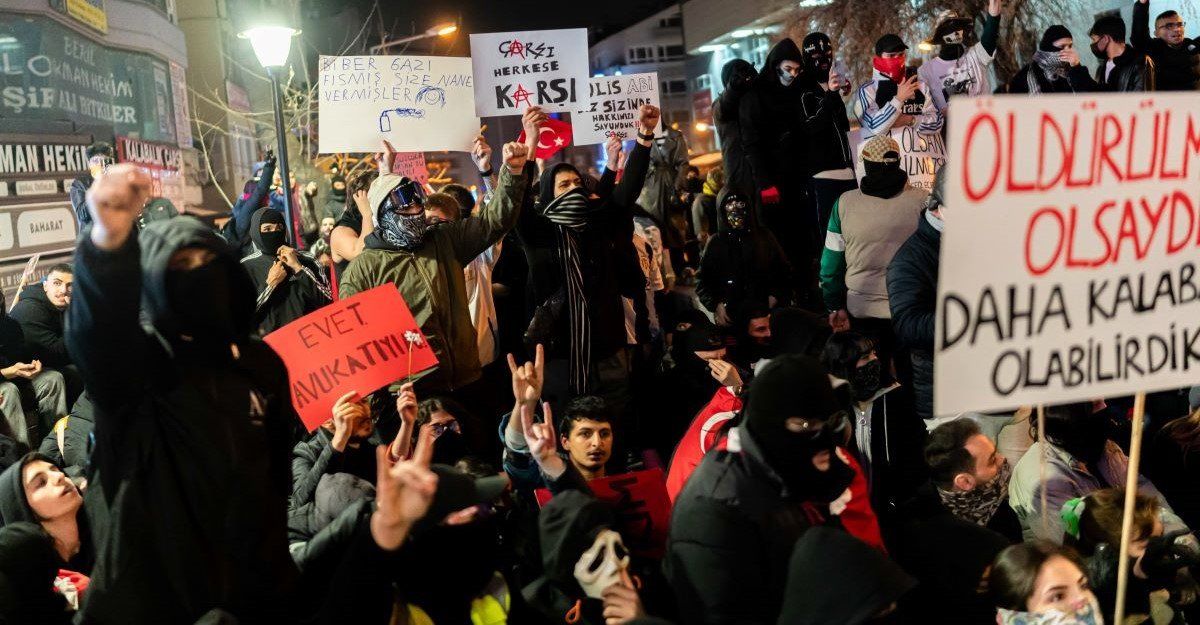Last week’s arrest of Istanbul Mayor Ekrem Imamoglu sparked the largest anti-government rallies in a decade and resulted in widespread arrests throughout Turkey. Nearly 1,900 people have been detained since the protests erupted eight days ago.
Imamoglu, President Recep Tayyip Erdogan’smain political rival, was imprisoned on Sunday while awaiting trial on corruption charges. He has been leading in some polls, and many believe his arrest was politically motivated to stop him from running against Erdogan in 2028.
“The protests are not shrinking,” a journalist on the ground in Istanbul told GZERO. “The method of protest is transforming.” He said that protesters have been holding public iftars (evening meals) to break their fasts together during Ramadan and that a large protest is being planned for Saturday. Government authorities deported a BBC reporter on Thursday for covering the protest, highlighting the dangers for the Fourth Estate in the bicontinental city.
Protesters are also calling for a boycott of Turkish businesses connected to pro-government news outlets they feel are failing to cover the demonstrations. The government has expressed fears the boycott could further dampen the economy.
Turkey had been moving toward stabilization after a long period of political instability, soaring inflation, and economic woes. But the current political turmoil has started to impact the markets, with mounting uncertainty prompting international investors to pull substantial amounts of capital from Turkey’s financial markets. Simultaneously, the Turkish lira is under pressure, falling 3% and forcing the central bank to sell significant reserves.
The government is trying to get the economic situation under control. Turkey’s capital markets authority imposed a ban on short selling and speculation on further price drops. At the same time, it relaxed rules on stock buybacks to prop up rapidly falling share prices. In response, the index rose by around 2% before reversing course, falling back to its lowest point since November. This could have severe consequences for the country, particularly since Turkish investors depend heavily on the stock market as a hedge against the high inflation rate, which stands at approximately 39% this month.
